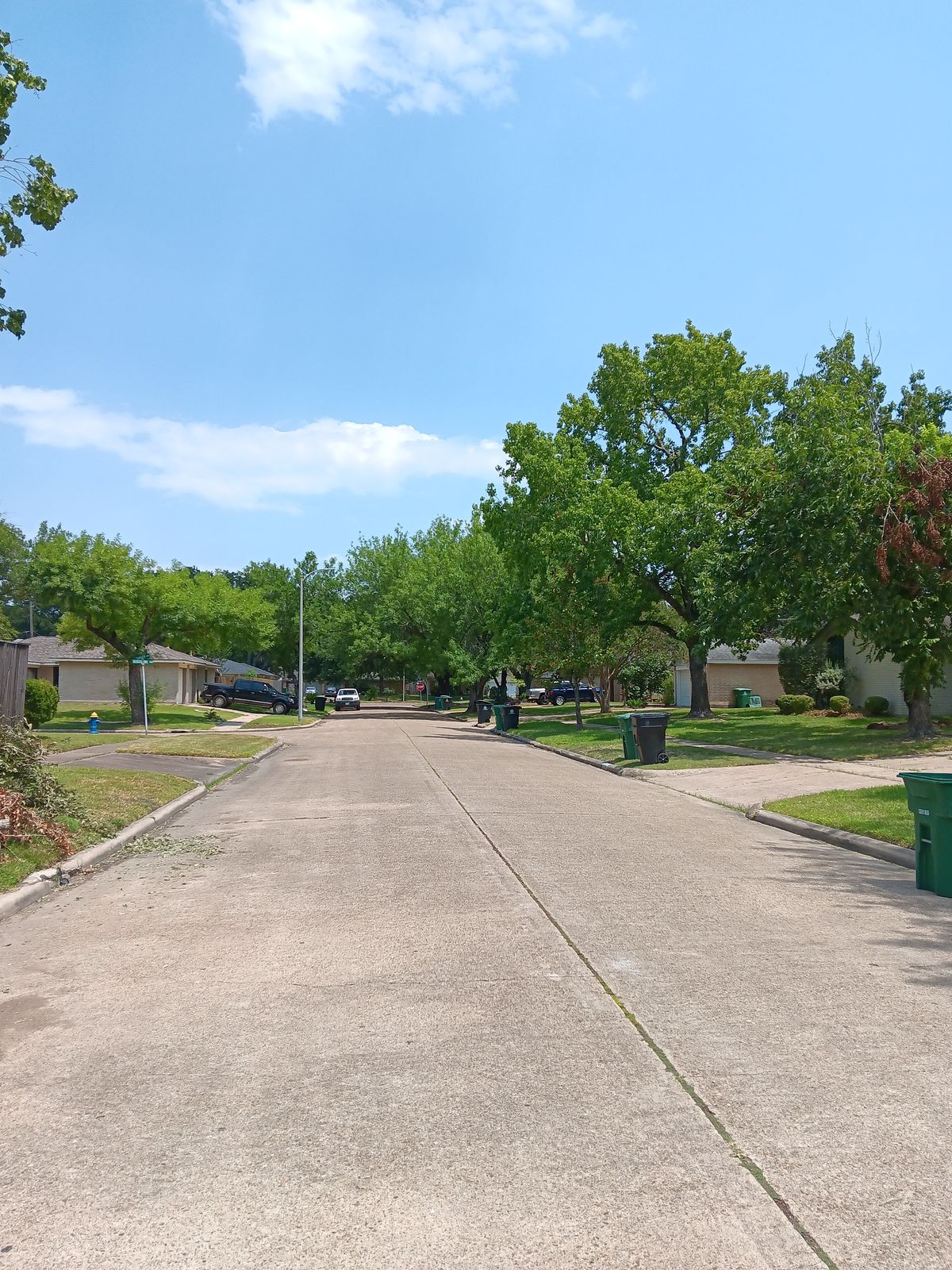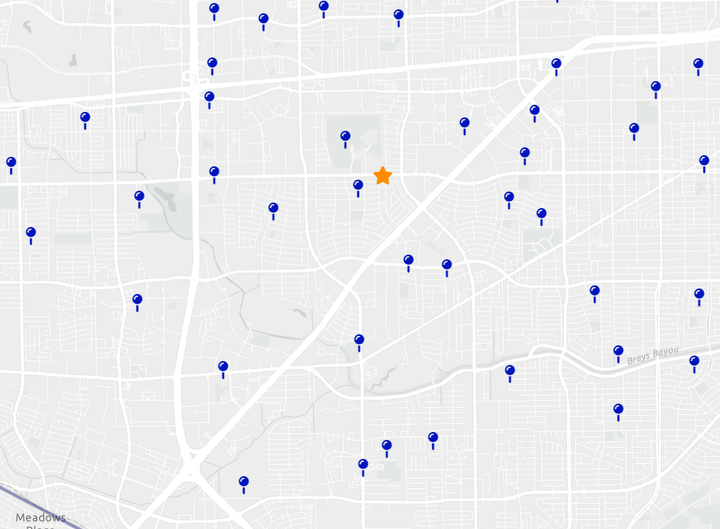What Gets Sprayed in Sharpstown’s Weekly Mosquito Treatment?

Ever take a walk on a Sharpstown evening and notice that something was missing?
Something like cool air, non-sweaty skin, or maybe…mosquitoes?
If you’ve noticed a strange absence of the biting critters, it may be thanks to the weekly mosquito spraying paid for by the Sharpstown Civic Association. The SCA uses a portion of their voluntary membership dues to hire Cypress Creek Pest Control, which also does mosquito spraying for Sugar Land and other large communities around Houston.
Zach Ivey, owner of Cypress Creek Pest Control, said that the product sprayed in Sharpstown is Kontrol 30-30, which uses permethrin to kill mosquitoes while they’re in the air. It also uses piperonyl butoxide as a “synergist” to amplify the effects of the permethrin.
Permethrin is also toxic to bees. Ivey said that’s why his company sprays at night when bees are not foraging. The goal is to kill only the insects that are actively flying at the time of treatment: mainly mosquitoes.
But what about residue left on the ground? Ivey said the small amount of permethrin he sprays has “deteriorated to the effect of uselessness by the time it hits the ground” and should be completely gone within 12-18 hours. “I’m not gonna say we’re not killing bees,” he said. “But we’re mitigating as much as possible.”
Still worried about your pets or kids?
Ivey recommends that you avoid contact with the spray and “put your pets away, just as a cautionary thing,” but says, “I get this stuff on me all the time, and it’s not like I have eleven toes or anything.”
After all, he says that his company breaks the Kontrol 30-30 “down to 15 microns” (0.015 millimeters, or 1/67th of a millimeter) and dilutes it into a 6% concentrate, only spraying 4 oz per minute, spread across a 300-foot-wide swath. In other words, the amount of permethrin in the air in any one location is likely minimal.
But it’s not a bad idea to be cautious. High quantities of permethrin (such as those found in many flea control products for dogs) are toxic to cats.
If you want to bring your kids or pets inside, don’t watch for a stereotypical 1960s bug truck with dense clouds of fog rolling out of the back. Most of those trucks used thermal foggers, but Cypress Creek uses a ULV—ultra-low-volume—machine that may make the spray more difficult to see. Just look for a truck that says “Cypress Creek Pest Control” on it.
Normally, one truck will spray all the residential streets of Sharpstown in one night, starting in the evening and usually taking 6-8 hours, according to Ivey. The spraying, which starts in April and ends in October, may happen on different nights each week depending on weather (the truck can’t spray during rain because permethrin is also toxic to fish and aquatic invertebrates, and water runoff could potentially impact the ecosystem).
Ivey says that the weekly spray isn’t an automatic cure-all for mosquitoes: “You should still be responsible and do the right thing on your property” by cleaning potential mosquito breeding grounds like pools and other standing water.
The mosquito spraying cost the Sharpstown Civic Association $22,485 in 2021, $25,190 in 2022, and $6,141 so far in 2023 (as of June). Financial decisions are made by the SCA board, which is elected by dues-paying members.
Read the EPA's 2009 document on permethrin facts here.
Download the label and facts for Kontrol 30-30 below:



Comments ()